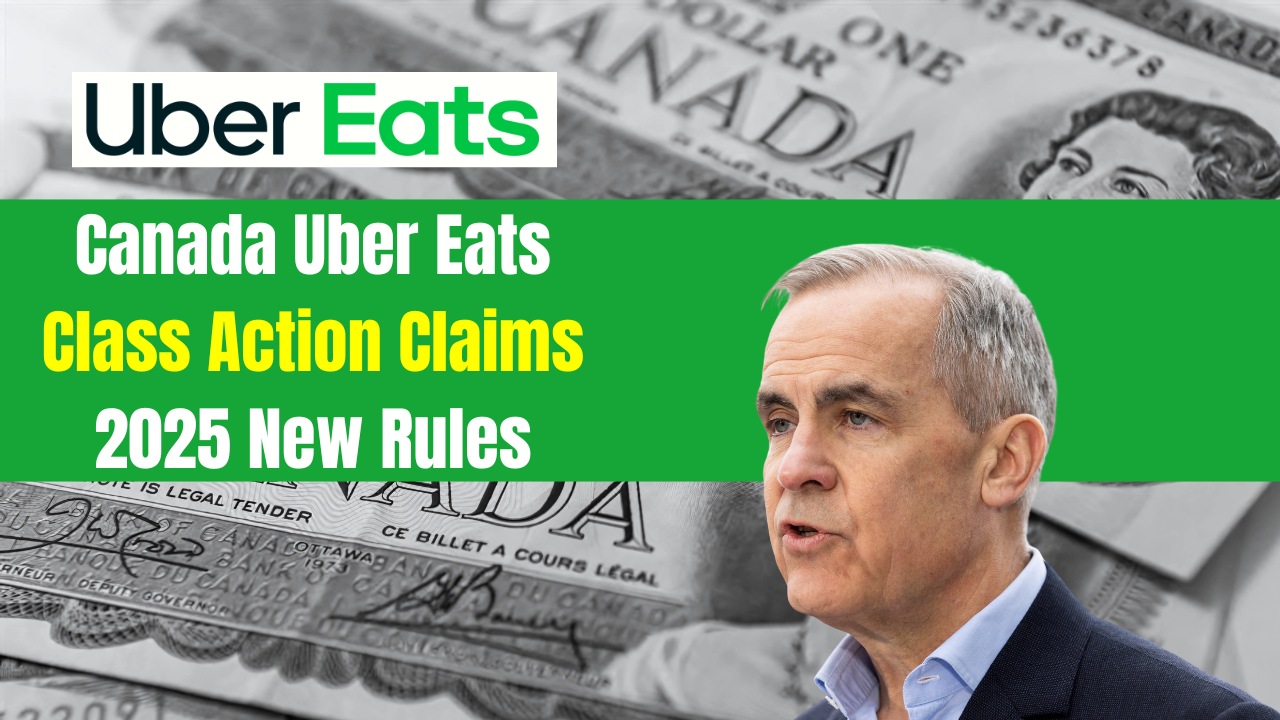A significant legal challenge has emerged in Canada, targeting Uber Technologies Inc. and its popular food delivery platform, Uber Eats. The proposed class action lawsuit, filed on May 16, 2025, in Ontario, accuses the company of misleading customers by not clearly disclosing a mandatory Service Fee during the ordering process. This development comes as concerns about transparent pricing in the digital economy grow, especially after the COVID-19 pandemic accelerated the adoption of food delivery services.
The lawsuit is spearheaded by law firm Koskie Minsky LLP and alleges that Uber Eats has engaged in so-called “drip pricing” tactics, a practice where companies add or reveal extra fees only at the final stage of checkout, often leaving consumers unaware of the total cost until it is too late to reconsider their purchase.
The Core Allegations: What Is at Stake?
At the heart of the controversy is a Service Fee that ranges from $2 to $4 per order, depending on the total value of the food basket. The fee is applied to all delivery orders and is calculated as a percentage of the order value for baskets between $20 and $40, with minimum and maximum caps. According to court documents, this fee is not disclosed to users until the final checkout page and is often grouped under a vague “Taxes & Other Fees” line item, rather than being presented as a separate charge levied by Uber Eats itself.
Plaintiffs argue that this practice is misleading because it makes it difficult for customers to distinguish between government-imposed taxes and company-specific fees. The lawsuit claims that by hiding the Service Fee, Uber Eats underrepresents the true cost of delivery and manipulates consumer choices.
Uber One Membership and Subscription Benefits
A separate but related issue concerns Uber One, Uber’s premium subscription service. Uber One promises benefits such as $0 delivery fees on eligible orders, but the lawsuit alleges that members are still charged the Service Fee, regardless of whether they meet the minimum order requirement for free delivery. The legal team argues that this contradicts the core promise of the subscription and may constitute a breach of contract.
The Service Fee, which only applies to delivery orders, is described in the lawsuit as “really a delivery fee,” since it is not charged on pick-up orders. This raises questions about the transparency and fairness of Uber’s pricing structure, especially for subscribers who expect to avoid extra charges.
Legal Framework and Consumer Protection
The lawsuit references several Canadian legal provisions to support its claims:
-
Competition Act (Canada): Allegations of misleading representation and deceptive digital pricing.
-
Consumer Protection Laws: Failure to disclose mandatory charges before confirmation.
-
Contract Law: Breach of agreement related to subscription benefits.
The legal team is seeking a range of remedies, including refunds for all Service Fees collected since May 2023, the return of profits made through these fees, punitive damages, reimbursement of legal costs, and a mandatory change in how Uber displays fees within its app.
Who Is Eligible to Join the Class Action?
If the court certifies the lawsuit as a class action, any individual who meets the following criteria may be eligible to participate:
-
Residency: Must be a resident of Canada.
-
Platform Use: Must have used Uber Eats for food delivery.
-
Date Range: Must have placed an order on or after May 16, 2023.
-
Fee Incurred: Must have paid a Service Fee during the food order.
Once certification is granted, affected users will be formally notified and given the opportunity to join or opt out of the legal proceedings.
Implications for Digital Pricing and Consumer Trust
The outcome of this legal battle could have far-reaching consequences for the digital economy in Canada. If the court rules in favor of the plaintiffs, it may prompt stricter enforcement of pricing transparency rules under the Competition Act and provincial consumer protection laws. This could lead to:
-
Mandatory breakdowns of all charges before checkout.
-
Stricter enforcement of truthful advertising.
-
Revised subscription standards requiring more transparent benefit descriptions.
Other companies in the gig economy and e-commerce sectors may be forced to reevaluate their pricing practices to avoid similar legal challenges and maintain consumer trust.
What Affected Customers Should Do
While the case is still in its early stages, affected customers can take the following steps:
-
Revisit your Uber Eats order history from May 16, 2023, onward.
-
Download and save receipts where the Service Fee appears.
-
Monitor updates from Koskie Minsky LLP, the law firm handling the case.
-
Stay alert for court notifications about participation options.
Even if the case settles out of court, eligible individuals could still receive refunds and benefit from improved transparency in the future.
Comparison: Drip Pricing in Canada
| Practice | Description | Impact on Consumers |
|---|---|---|
| Drip Pricing | Adding or revealing extra fees at final checkout | Misleads on true cost |
| Transparent Pricing | Disclosing all fees upfront | Informed decision-making |
| Subscription Benefits | Promises of no extra fees, but hidden charges apply | Breach of trust, contract disputes |
FAQs
Q: Who can join the Uber Eats class action lawsuit?
A: Any Canadian resident who placed a delivery order on Uber Eats on or after May 16, 2023, and paid a Service Fee.
Q: What is drip pricing?
A: Drip pricing is the practice of adding or revealing extra fees only at the final stage of checkout, often hiding the true cost from consumers until the last moment.
Q: What is the lawsuit seeking?
A: The lawsuit seeks refunds for Service Fees, return of profits, punitive damages, legal cost reimbursement, and changes to fee disclosure practices.
Read More Social Security Benefits at Risk: Major Cuts Looming in 2033 Without Congressional Action

